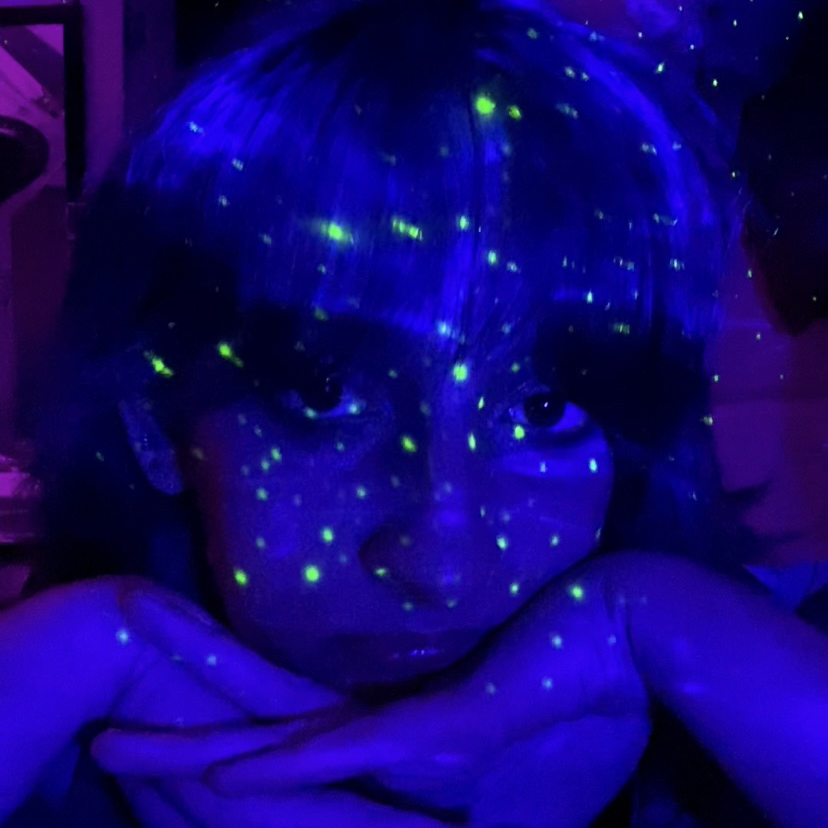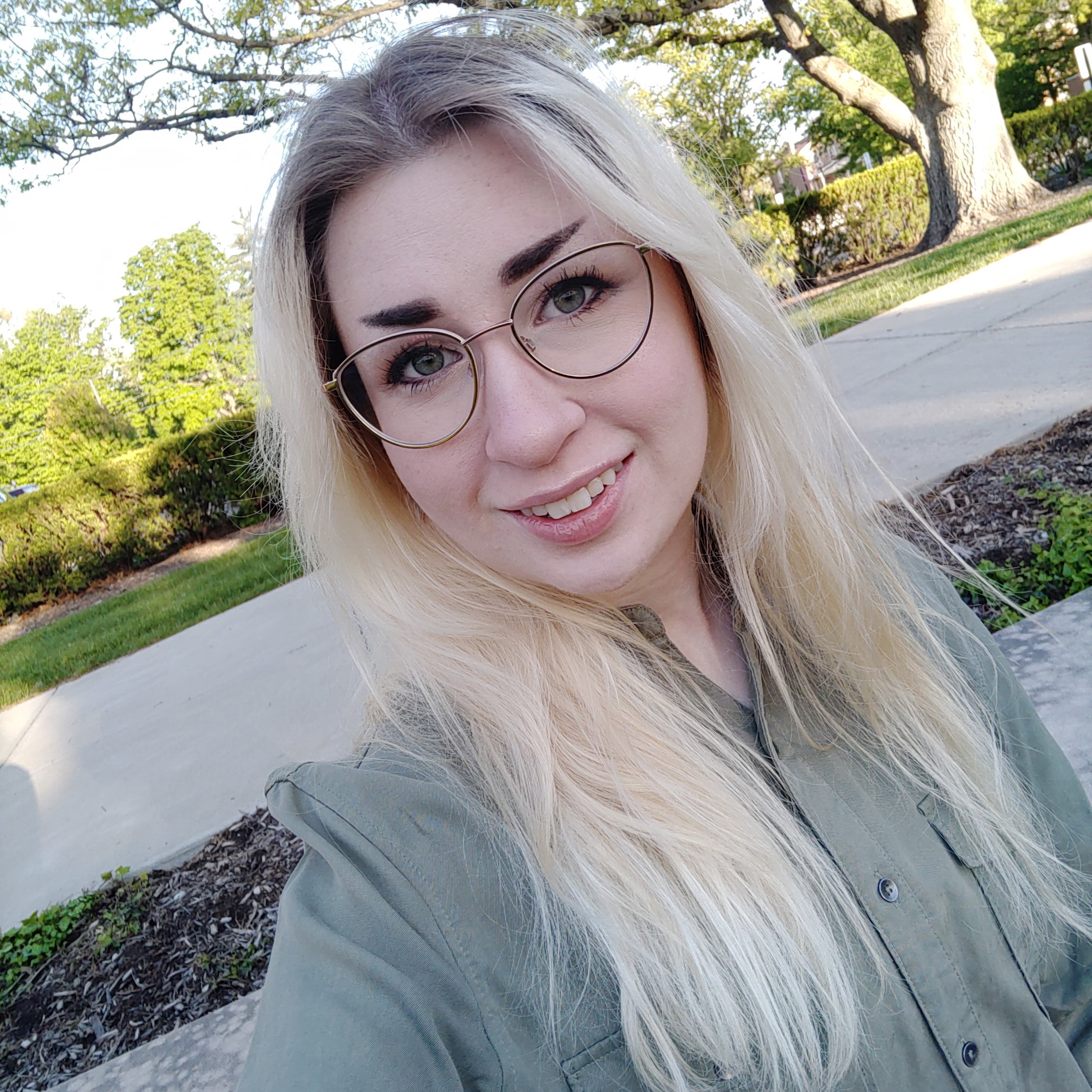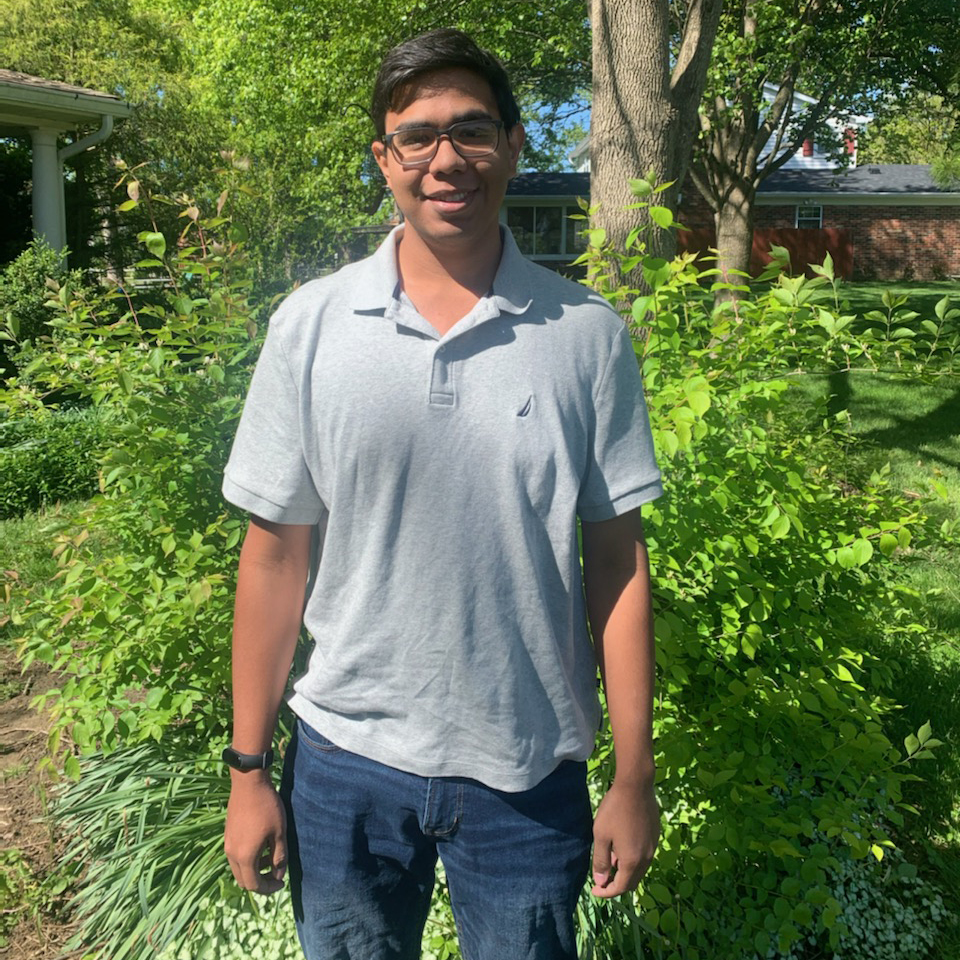Read the Winning Entries in the 2021 HWC Poetry Contest!

For the Spring 2021 Howe Writing Center (HWC) poetry contest, we asked Miami student writers to reflect on what “Hope and Rebirth” mean to them, especially in the current moment. We received many excellent submissions and are grateful to have read them all. A team of writing center consultants and staff took part in the judging process, factoring in authors’ creative works and their reflective notes.
Paige Hartenburg, first-prize winner for her poem “Flowers for Lily,” challenged cure narratives surrounding mental health and wrote about hope that is “not dictated by overcoming one’s challenges but learning to live with them, understanding both beauty and pain as a part of living.” For Sarah Zimmerman, whose “When Fears are Validated, Progress Halts” earned second-prize honors, the prompt led to reflection on her journey with OCD during the pandemic, when she found herself, at times, “unable to differentiate normal safety precautions and compulsions.” Alfredo Ascanio, staff choice winner, believes hope and fear “tend to be two sides of the same coin.” He explores this in “I Crossed a Bridge,” a poem about leaving his home country.
Read the winning entries below, along with reflections and bios from the authors.
First Prize: Paige Hartenburg
Read Paige's poem "Flowers for Lily"
Flowers for Lily
So you tell me my scars were an attempt to change the seasons
To bind Persephone’s lips to my wrist
Preventing her from ever tasting the sweet fruits of my sister’s garden
That you hope a cloudy day’s rain will snap my skin like a rubber band
Bringing my body down on its knees
To find you
Standing before me with open palms
Ready for me to climb my way to your victory garden
You forget my body belongs to winter’s weeds
And I can see them in your guilt
Trapping you here, digging into your flesh
Until boney braches sprout flowers of sorrow
I hope they come up your throat the next time you mention my name.
In the Writer's Words
When looking at the prompt, “hope and rebirth,” I choose to focus on how those topics relate to growth. Specifically discussing the impacts of self-harm, my poem describes the growth that occurs due to an unchangeable past. I think many of the conversations surrounding mental health, especially during the pandemic, center around overcoming. As a result, mental illness is often depicted as a place without progression or hope. While these stories are important, cure narratives can be detrimental to those with mental illness. I chose to emphasize the beauty of living with mental illness. Depression, while sometimes a battle, is not static and isn’t always something to overcome. By challenging cure narrative, we allow for more diverse perspectives about mental illness in which hope is not dictated by overcoming one’s challenges but learning to live with them, understanding both beauty and pain as a part of living.

Paige Hartenburg (she/her) is a third-year English literature major with a double minor in Political Science and Digital Marketing. Writing poetry since high school, she enjoys using language to explore complex emotions in creative ways. Publishing in other small journals, Paige looks forward to developing her writing further, hoping to enter the world of publishing post-graduation, helping others share their stories and words.
Second Prize: Sarah Zimmerman
Read Sarah's poem "When Fears are Validated, Progress Halts"
When Fears are Validated, Progress Halts
My friend told me they hold
their breath and walk quickly
when they pass others now on the sidewalk.
I’ve done this since I was ten years old.
I learned to stop the urge to run
to the sink every hour, but now
they tell me touching a cereal box
holds a tangible threat.
I learned too late that thoughts
hold no power. And now I know
walking in and out of a door frame four times
does nothing to change the world.
but where is that line drawn?
If I stand too close to someone
or hesitate for too long
is it rational to take my temperature
and pulse ox five times when I return home?
I watch the news I take hour-long baths
I ignore lost progess I don't know what
day it is.
If I close my eyes at night
will I wake up in the morning?
If I see my friend
will I regret the contact?
I avoid long lines at the grocery store I carry hand sanitizer
everywhere
I still can’t walk alone I find new ways to
rationalize
Two weeks before lockdown,
I stepped on a crack in the pavement
for the first time in over a decade,
The muscles in my chest restricted,
and I could feel the line where I stepped
seared across the sole of my shoe,
but I kept walking.
I’ve been pulled in again.
the social isolation and fear
creating a mixture inside myself
that tells me I never should
have
rebelled against compulsion.
When I was six, I made a wish that came true. I threw a coin into a pond and said, "I wish for a fish." When I was ten we moved into a new home and the owners had left their goldfish behind. We took care of them. When I found a lump in my breast, I examined the growth multiple times a day, turned light switches off and on, held my breath as I looked in the mirror, and imagined the cancerous cells shifting back into healthy ones. When I was examined, they told me it was just a cyst. When I was sixteen, I was convinced listening to a certain album would kill people I loved. I knew a wrong step, an out of turn movement, a dark art piece, or a text sent too late could do the same. It became a routine. I learned to do everything the right number of times, to say certain safe phrases, to consume calm media, to keep my hands clean, but the strain was too much. I listened to the album. My friend committed suicide a week later.
I could have told you none of it was real
the whole time. I had memorized
the script of healthy people,
but after she passed
I had all the proof I needed to continue.
I couldn’t leave the house alone I couldn’t take a shower under thirty
minutes
I stopped writing I stopped giving myself breaks
I noticed the control coming back too late.
It creeps in slow.
"Wash your hands; you were in public
in a pandemic,” turns into
"Wash your hands; you touched your coat
you wore to the grocery store days ago."
Hold your breath, so you don’t breathe in
pathogens,” becomes “Adjust your pillows,
so they form a perfect forty-five degree
angle against your bed and pull the sheets
above your neck, so no one can kill you,”
but I had already received a taste of
freedom.
I sat in my bed after reading the news
about the virus four hours.
my mouth parched, but I couldn’t stand.
I remembered a month of being able to create
and fall asleep when I wanted,
when all the intrusive thoughts still entered,
but I was starting to learn how to say no.
I remember this feeling I cry from the ache
I know I have a chance I chase the relief from
responsibility
I pushed off the thoughts for long enough
to get my first job this winter. As I pour
coffee into cups and hand them to unmasked
customers, I start to learn again
every action is not all or nothing.
I put myself under pressure I know it is for the best
I feel pain when I don’t give in I notice it start to ease
away.
Two months later when I walk home
at night, I realize I can look at the sky.
The stars are shining. I haven’t seen them
as I move beneath them since I was a child.
I identify Orion and his dogs.
Their light cutting through the sky
is too pretty for me to be compelled
to avert my gaze again.
In the Writer's Words
I was starting to make progress on my recovery from OCD in the months before the pandemic started. It was the first time I was able to deny my compulsions in years. Lockdown started, and suddenly I was unable to differentiate normal safety precautions and compulsions. My OCD became worse again, and I was worried I lost all progress I had made. I wanted to write a poem to talk about this journey and how the pandemic changed the course of my recovery.

Sarah Zimmerman is a senior Creative Writing major. She is a member of Tau Beta Sigma, a music-service sorority on campus. In her free time, she likes to paint and knit.
Staff Choice: Alfredo Ascanio
Read Alfredo's poem "I Crossed a Bridge"
I Crossed a Bridge
So full of fears, I crossed a bridge. With shaky hands, with shaking case with
little to no weight.
Terrified at every step.
A thousand souls walking along,
so many of them to not return.
With broken hopes, with broken faiths, with broken dreams to no avail.
So full of past, I crossed a bridge. Angry, scared, at what had been,
what I had done, what I had seen, and what I didn't get to be.
Saying goodbye, as those who left so long ago, so far away.
Leaving behind a part of me
that I may never get to see.
Finding myself, I crossed a bridge. With many doubts, with trembling feet,
rebuilding hopes, regaining dreams. Set to discover a newer me.
Aiming to change, to build, to do, all that I ever wanted to.
Reaching new paths, with broader roads, where the old burdens wouldn't
get stuck.
As I keep walking, leaving behind that bridge I can't cross from future to past,
new fears have come to set in my mind. Will this result? Will I succeed?
Will I become what I once had dreamed? Fears of loss hope, fears of new
loss. Maybe a new bridge, that I'll have to cross.
In the Writer's Words
This poem speaks of the moment I left my country, crossing a long bridge at the border. The border was open but heavily controlled due to political and social unrest in my home country, and the only way to cross was on foot. What I wrote reflects what I saw, along with my thoughts and feelings as I walked through that bridge, watching hundreds of other people moving along with me. Many of us looking for a better future. Leaving home is never easy. I was hopeful, but I also discovered that hope and fear tend to be two sides of the same coin.
Writing this poem was difficult for several reasons. I like poems with a certain structure and intonation, both in English and Spanish. But, as English is not my native language, making rhymes and picking the right number of syllables requires a lot more effort. I wrote more lines that didn’t appear in the end result. I had to rewrite entire paragraphs, sometimes leaving only one verse that resonated more with what I felt while trying to keep the structure that I wanted.
At last, I wanted to share a bit of what I’ve experienced in my life. And I hope that you like this poem.

Alfredo Ascanio is a PhD student within the Ecology, Evolution, and Environmental Biology program. He earned his bachelor degree at Universidad Simón Bolívar, Venezuela, in 2018. The following year, an opportunity opened for him to start a PhD at Miami University. He came here wanting to learn a lot, further his career, grow, and to find a much needed change from the environment he was in.

